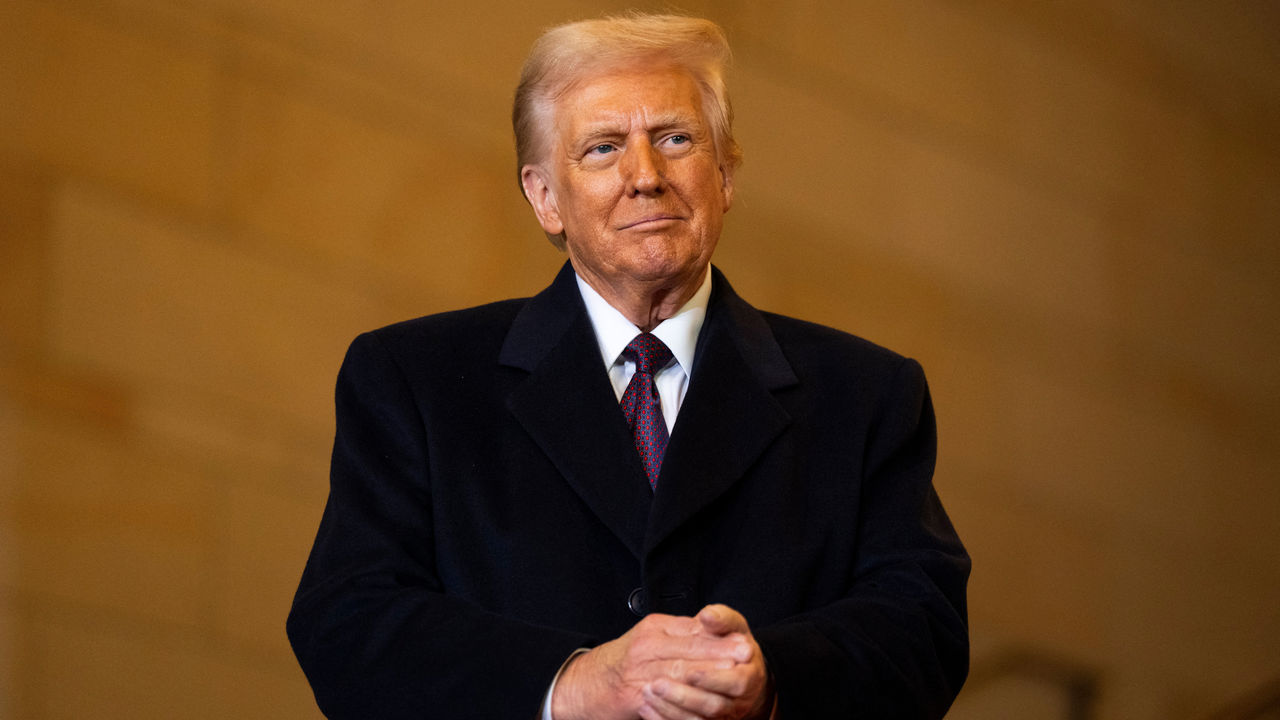Maybe you are in the habit of applying a hefty discount to claims by Donald Trump; no one could blame you. But he really does have the chance to lead America into the golden age he proclaimed in his second inaugural address. Historic circumstances, political dynamics and his own audacity could also enable him to achieve the legacy he wants as “a peacemaker and a unifier”. His party has fallen into lockstep; his adversaries at home are confounded and enervated, and America’s opponents abroad are preoccupied with their own troubles. Mr Trump has battled for ten years against anyone he perceived to have crossed him. His most formidable adversary still standing is probably himself.
As he assumes office again, Mr Trump has embarked on a marketing offensive, a familiar routine, albeit this time with a twist: rather than having to persuade people something is grander than it is—that the Trump Tower in Manhattan has 68 floors rather than 58—he has to assign himself credit for things that are truthfully better than Americans may yet realise. America’s economy is the envy of the world. America is already exporting record amounts of gas and oil, and its biggest obstacle to pumping more is global demand. But Mr Trump’s declaration in his inaugural address of a “national energy emergency” may help him vault to the head of the kind of parade celebrating American glory that poor President Joe Biden lacked the wherewithal to summon.
Similar gamesmanship explains Mr Trump’s inaugural commitment that Americans would now “be able to buy the car of your choice”, which was equally true under Mr Biden (and equally untrue for those who chose a Ferrari but could not afford one), and his pledge to use troops to “repel the disastrous invasion of our country” at the southern border, where arrests for illegal crossings are below the level when Mr Trump left office.
Yet Mr Trump’s initial executive orders are meant to do more than gild the lily. In some cases they call for drastic action, particularly on immigration. As with Mr Trump’s promises of tariffs and his exhumation of “manifest destiny”, no one knows how far he may go with his deportation initiative. But there is also a bigger, more hopeful possibility: Could his showy crackdown be part of a grand plan for the golden age?
In Mr Trump’s first term some of his aides saw the potential of linking enhanced border security to broader reform of America’s immigration system. For all his harsh oratory about immigrants, Mr Trump has sometimes sounded sympathetic, particularly about people brought as children. Last October, he told the editorial board of the Wall Street Journal he had a practical reason for his tough talk about illegal immigration: “The nicer I become, the more people that come over illegally.” (The Biden administration learned that lesson to its sorrow.) But, Mr Trump said, “We have a lot of good people in this country, and we have to do something about it.” In general, said Mr Trump, who is married to an immigrant, and not for the first time, “I want a lot of people to come in, but I want them to come in legally.”
Mr Trump tries to win over any room he walks into, and that may explain his comments to the Journal editors. But he may also recognise that he has amassed more credibility with immigration hardliners than any president in memory, and thus has an opening to achieve what his recent predecessors could not. Comprehensive immigration reform has eluded presidents since 1986, when Ronald Reagan signed into law heightened border security along with amnesty for almost 3m people in America illegally.
Other grand, bipartisan bargains are possible for Mr Trump. He has not displayed interest in the kind of far-reaching tax reform that Reagan achieved, but in his first term he showed a flash of ambition for the sort of gun-safety legislation that polls show a majority of Americans want. “It’s not going to be talk like it has been in the past,” he told grieving parents and students after a 19-year-old gunman killed 17 people at a Florida high school in 2018. “It’s been going on too long, too many instances, and we’re going to get it done.” He scolded Republican lawmakers for being “scared” of the National Rifle Association (but then, after talking to NRA officials himself, backed off).
Such deals at home would realise Mr Trump’s vision of being a unifier. His opportunities to prove himself a peacemaker, extending America’s golden aura beyond its shores, await not in Panama but in Eastern Europe and the Middle East, where war may have wearied America’s allies but has surely weakened its adversaries, Russia and Iran. The test for Mr Trump is whether he can insist on fair deals for Ukraine, and for the Palestinians.
With malice toward some
From Abraham Lincoln to Franklin Roosevelt to Reagan, presidents who accomplished great things appear more as unifiers in the eyes of history than they did in those of their contemporaries. They were all dividers, too. They were also subjected to vicious criticism and even violent attack.
But Mr Trump has yet even to hint at the grandeur of spirit that those presidents brought to the job. The petty partisanship of his inaugural address, along with his pardons of even violent January 6th convicts, bode poorly for the chances he will ever overcome the weaknesses likely to cast a shadow over what could be a golden age: self-pity, a flickering attention span, a vulnerability to flattery and a reverence for strongmen. “Trump’s sense of aggrievement reinforced his penchant for seeking affirmation from his most loyal supporters rather than broadening his base of support,” General H.R. McMaster concludes in “At War With Ourselves”, his memoir about his time as Mr Trump’s national security adviser during the first term. “Trump’s indiscipline made him the antagonist in his own story.” And in America’s. ■

 Accounting1 week ago
Accounting1 week ago
 Personal Finance1 week ago
Personal Finance1 week ago
 Accounting1 week ago
Accounting1 week ago
 Finance1 week ago
Finance1 week ago
 Personal Finance1 week ago
Personal Finance1 week ago
 Blog Post1 week ago
Blog Post1 week ago
 Personal Finance1 week ago
Personal Finance1 week ago
 Accounting1 week ago
Accounting1 week ago






















